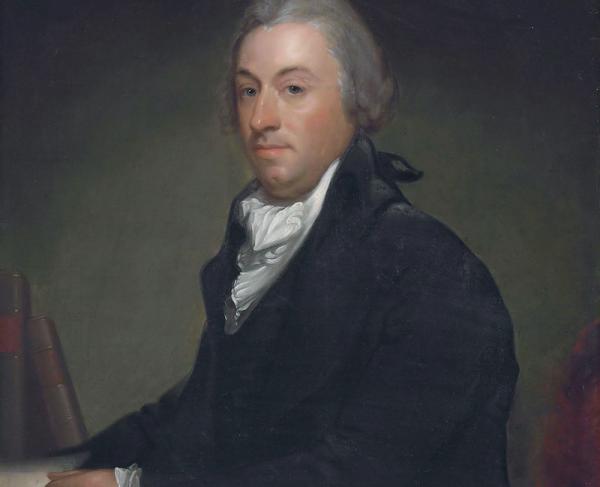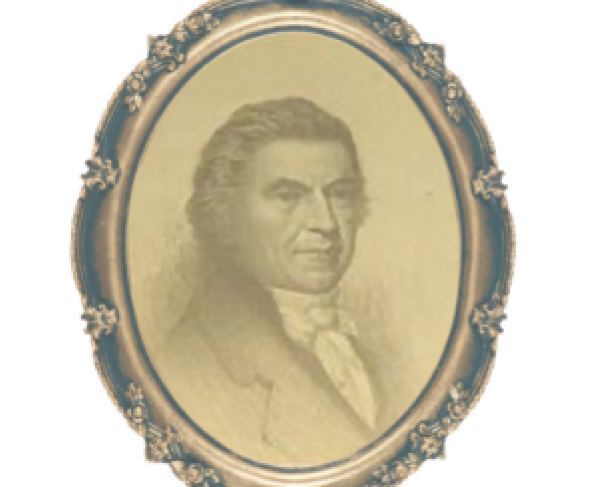Robert Livingston

Robert R. Livingston was an American statesman and a diplomat to France, most famous for negotiating the terms of the Louisiana Purchase. Born in New York City on November 27, 1746, he grew up as part of New York’s elite. His father and brothers all held high political offices both locally and nationally in their lifetimes. His family’s affluence allowed him to enroll in King’s College, part of Columbia University, where he graduated in 1765. Like many men from his background, he went on to become a lawyer, being admitted to the New York bar in 1773.
In October 1773, the Royal governor appointed Livingston to be the recorder of New York City by the Royal governor. The recorder served essentially as a judge, presiding over judicial proceedings. Even as Livingston heard his first cases, tensions between the colonists and the British authorities heated up across the Thirteen Colonies. On December 16, Patriots tossed barrels of tea into Boston Harbor, protesting British taxes. Livingston sided with the Patriots in the ensuing debates. The Royal governor, therefore, removed him from office after less than six months.
Two years later, in 1775, the simmering tensions between colonists and colonial authorities boiled over into war. That year the Second Continental Congress was called, and New York appointed Livingston as one of the delegates. While the Congress was initially called to try and settle the dispute with Britain, George Washington’s victory at Boston emboldened them to seek independence. The following summer, while serving in Congress, Livingston was appointed to the Committee of Five. The committee was tasked with drafting a declaration announcing America’s independence from Britain and enumerating the grievances that compelled this decision. Thomas Jefferson, another member of the committee, wrote the first draft. Livingston and the other members then worked through the document, making many edits and revisions. Before the final draft was ready, however, Livingston returned to New York to help form its state government. He sent his brother, Philip Livingston, to sign the final version in his place.

The next year Robert Livingston was nominated to serve as New York’s first “chancellor”, the chief judge in the state. Later, between trips to New York to hear cases, he also served as the first Secretary of Foreign Affairs from 1781-1783 under the Articles of Confederation; this was his first foray into diplomacy. Throughout his tenure as chancellor, Livingston ran multiple times for political offices. The debates around the new US Constitution in 1789 convinced Livingston to become an anti-Federalist, allying himself with George Clinton and Aaron Burr. This made him many enemies, including Alexander Hamilton, one of the most vocal Federalists. In 1798, he ran for Governor of New York as a Democratic Republican against John Jay, an author of three of the “Federalist Papers”, and lost.
In 1800, Livingston’s old colleague and now political ally, Thomas Jefferson, was elected president. Livingston retired as chancellor in June 1801, three months after Jefferson’s inauguration, and in October, the president appointed him as the United States Minister to France. Despite France’s alliance with the United States during the American Revolution, by 1801, America’s relationship with France was tense. During the French Revolution, France had demanded that the United States help them in their European wars. President Washington refused. Then the French had sent spies and agents to the United States to build public pressure to support France. The government passed the Alien and Sedition Acts in response—deporting or imprisoning French agents and increasing tensions. Finally, he had diplomatic conflict became a military one as French and American warships dueled at sea in an undeclared war.
In 1801, with Napoleon controlling France, Jefferson worried about the Spanish giving the Louisiana Territory in North America back to France. Jefferson feared Napoleon would not be a friendly neighbor. Also, with France controlling New Orleans, they had complete control of access to the Mississippi River. Many Americans feared the French would use this as leverage in any future disputes. Jefferson instructed Livingston to prevent Napoleon from using Louisiana against the United States.
During his three-year mission to France, Livingston negotiated first for a free-trade treaty, which then morphed into an offer to buy New Orleans and southern Louisiana, and then finally evolved into the Louisiana Purchase which more than doubled the territorial size of the United States. Napoleon needed the money to fund his wars, and America wanted to keep the Mississippi River open to trade. The signing of the Louisiana Purchase took place on April 30, 1803. Robert Livingston called it “the noblest work of his life." It prevented a war between the United States and France and secured a critical avenue for commerce and migration which still serves as a vital artery for commerce to this day.
After returning from France, Livingston retired to his home in Clermont, New York, where he died on February 26, 1813, at age 75. He was never recognized for his achievement during his lifetime or immediately following his death. Jefferson and Madison had sealed away his letters and papers from France and deflected praise, seeing him as a potential rival for the presidency. It was not until much later, after his death, that his role in negotiating the Louisiana Purchase became clear. Robert Livingston did not serve in a high political office, and he was not widely recognized. However, he had the distinction of playing a pivotal role in two crucial moments in early United States history: drafting the Declaration of Independence and negotiating the Louisiana Purchase. He was an important, if not widely remembered, member of that group we call the “Founding Fathers.”

